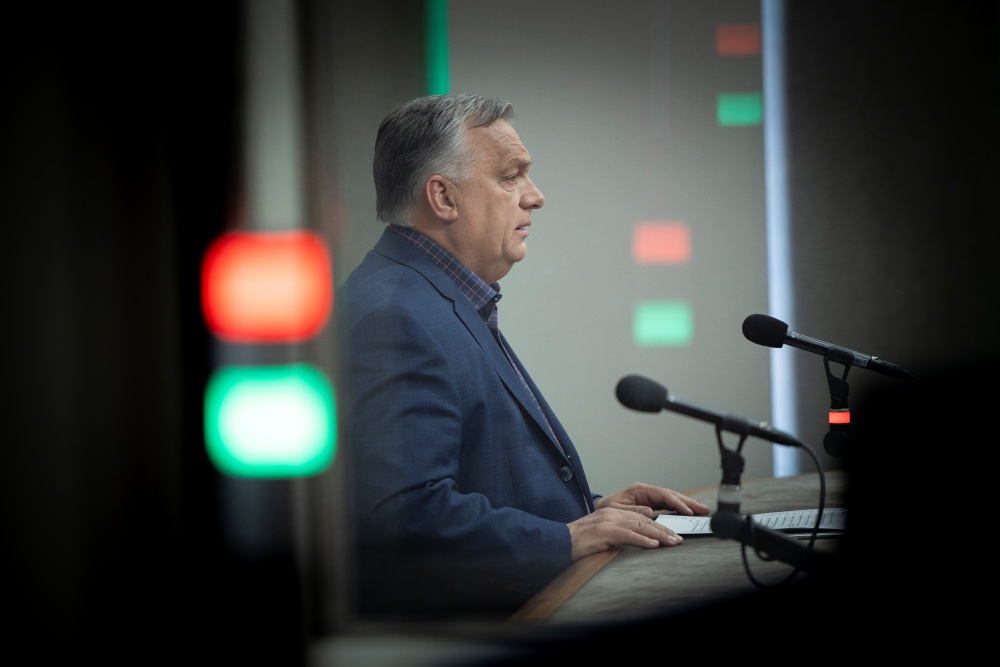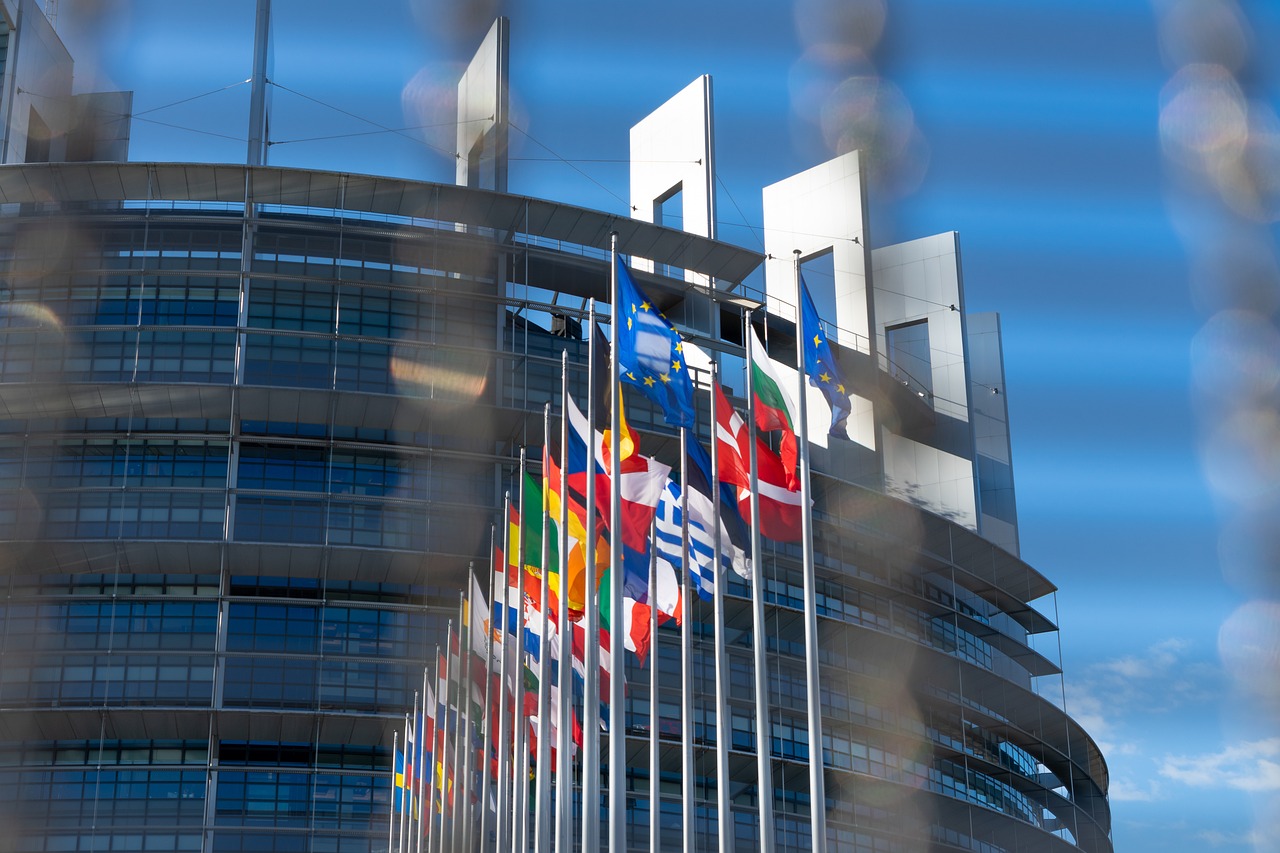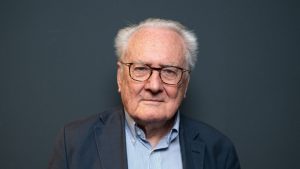
The PM gave a lengthy interview to MR1 Kossuth Radio discussing the EP elections, war, and peace.Continue reading

On Thursday evening, representatives of eleven political organizations running for the European Parliament (EP) elections had the chance to discuss their ideas in a live debate on the M1 news channel. During the two- hour-long session held at the Castle Garden Bazaar (Várkert Bazár), the participants presented their programs on four issues.
The participants were Viktor Dénes Huszár (Megoldás Mozgalom) who presented himself as a non-professional politician, Péter Ungár (LMP – Hungary’s Green Party); Klára Dobrev (DK-MSZP-Greens); Emese Pekárné Farkas (Second Reform Era Party), former candidate for prime minister, Péter Márki-Zay (Everybody’s Hungary People’s Party); Anna Donáth (Momentum); Tamás Deutsch (Fidesz-KDNP); academician Péter Róna (Jobbik-Conservatives); Péter Magyar, the second leading figure among the MEP candidates (TISZA Párt – Respect and Freedom Party); comedian and TV-host Imre Tóth (Hungarian Two-tailed Dog Party); and László Toroczkai (Our Homeland Movement).
Defense and security
Viktor Dénes Huszár emphasized Hungary’s commitment to EU and NATO membership, advocating for a common European army for enhanced security.
Mr. Huszár highlighted the importance of NATO in safeguarding borders and urged for increased spending on defense within Europe.
Left-winger Klára Dobrev criticized Viktor Orbán’s leadership, accusing him of endangering Hungary’s security and advocating for a strong, social Europe. Dobrev stressed the need for politicians who prioritize European unity and stability. Emese Pekárné Farkas raised concerns about granting visas and freedom of movement within the EU, linking it to housing crises and property sales to foreign investors. She called for a referendum on selling properties during crises and emphasized the need for an eco-social program for young people. Péter Magyar suggested that Europe should focus on building a common defense system to ensure collective security.
Migration and refugee issues
Turning to the next topic, Péter Márki-Zay highlighted the need for border protection and criticized the government’s handling of illegal migration. Anna Donáth of the far-left Momentum party emphasized the importance of addressing immigration as a European challenge, but not among the top issues for Hungary. She underscored the need to focus on revitalizing the Hungarian economy and budget. Tamás Deutsch of the government party Fidesz, however, accused Brussels and the “George Soros” empire” of facilitating illegal migration, warning against the migration pact’s implications. For his part, right-winger Péter Róna expressed opposition to EU migration policies and called for retaining each country’s sovereignty in border control decisions.

Péter Róna. Photo: Facebook
Agriculture
On the issues of agriculture, Viktor Dénes Huszár criticized the efficiency of Hungarian agriculture and advocated for knowledge-based technology to enhance productivity.
Péter Ungár criticized the EU’s common agricultural policy, claiming it leads to increasing food prices and poor quality.
Emese Pekárné Farkas emphasized the importance of Hungarian food self-sufficiency and proposed investing in high-value, competitive agriculture.
Democracy, rule of law
In discussions on democracy and the rule of law, Klára Dobrev reiterated calls for replacing Orbán’s government and emphasized the importance of restoring the rule of law.
Tamás Deutsch, on the other hand, accused the European left of undermining Hungary’s sovereignty and warned against the migration pact’s implications.
Márki-Zay called for accountability in the use of EU funds for agriculture and stressed the need to join the European Public Prosecutor’s Office. Anna Donáth emphasized the rule of law as a national cause, calling for EU pressure on the Hungarian government. Péter Magyar proposed agricultural reforms to retain young people in Hungary and reduce VAT (Value Added Tax) on healthy food. Magyar underlined his party’s commitment to accountability and transparency in politics. He also believes that holding politicians accountable is essential for restoring public trust and ensuring good governance. Imre Tóth highlighted the emigration crisis and proposed measures to retain skilled professionals in Hungary.
László Toroczkai stressed the importance of accountability in both the EU and Hungary and outlined his party’s program to support farmers and law enforcement agencies.
After the debate, director of the Nézőpont Institute, Ágoston Sámuel Mráz and István Pócza, Program Manager of the Lajos Batthyány Foundation, gave a brief analysis in the studio. Deutsch clashed with opposition leaders, highlighting their silence on the Ukraine war due to alleged foreign influence, according to Ágoston Sámuel Mráz. Despite some indiscipline, participants largely adhered to debate rules, noted István Pócza. War and corruption emerged as key issues, with Mr. Deutsch asserting a pro-peace negotiations stance toward Ukraine, countered by Dobrev, Márki-Zay, and Magyar. Participants lacked clarity on envisioning a peace process in Ukraine, observed Mr. Pócza. The opposition’s reluctance to challenge Prime Minister Orbán reflects fear of voter erosion, said Mr. Mráz.
Via MTI; Featured Image: Pixabay